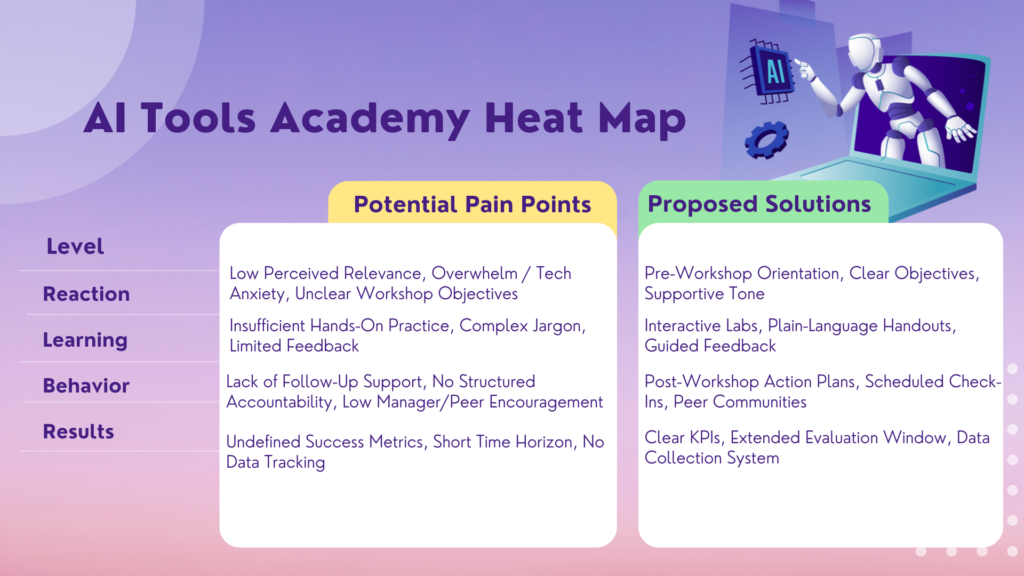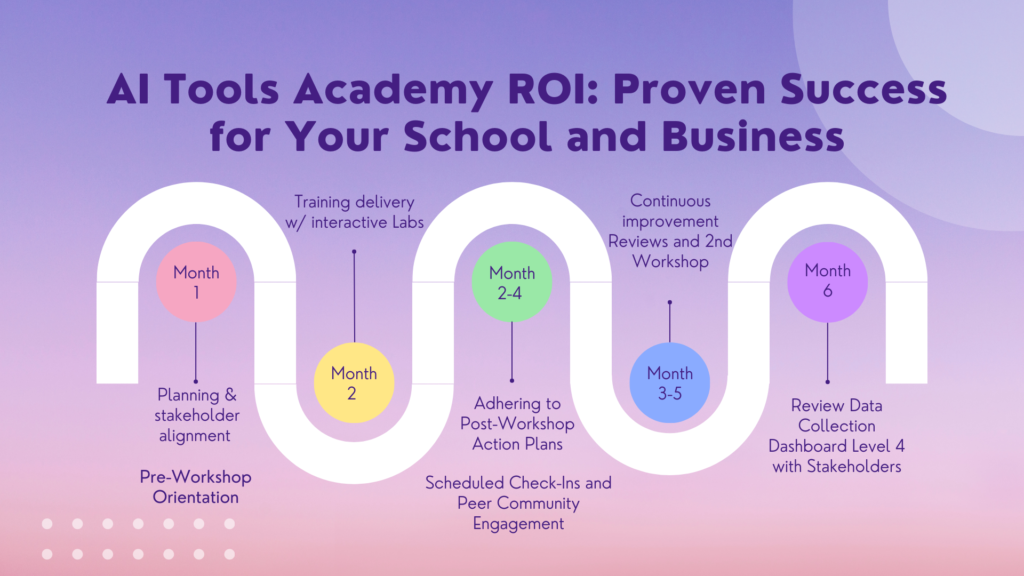Welcome to my portfolio blog! Today, I’m sharing insights from my recent Evaluation Proposal for the AI Tools Academy, a one-day workshop aimed at empowering educators, administrators, and small business owners to integrate AI responsibly and effectively into their day-to-day operations. A key takeaway from this project was discovering just how critical it is to identify and address the subordinate and prerequisite skills that learners need before they can truly excel in higher-level tasks.
Why Identifying Prerequisite Skills Matters
When you’re designing a workshop on cutting-edge technologies like AI, it can be tempting to assume participants share a uniform baseline of digital literacy. Reality, however, tells a different story. Some participants may already be adept at using online tools, while others might be new to concepts like cloud-based document sharing. By pinpointing each of these readiness gaps through a goal analysis, I was able to ensure that learners could first master foundational steps—like navigating AI platforms or understanding data privacy—before attempting more complex tasks, such as drafting a fully AI-assisted lesson plan or crafting an AI-driven marketing strategy.
Building a Hierarchy of Skills
A powerful tool I adopted in this proposal was creating a clear hierarchy of learning objectives, mapping out exactly which skills feed into each new competency. Here’s a quick snapshot of how the sequence was structured:
- Basic Tech Familiarity – Understanding common online platforms like Google Docs or Microsoft Word.
- Intro to AI Tools & Ethics – Learning about major AI platforms (ChatGPT, Google Gemini, Microsoft Copilot) and appreciating ethical considerations.
- Hands-On AI Practice – Trying out mini-projects like text-prompt creation, and seeing immediate results.
- AI-Driven Solutions – Developing real-world assets (lesson plans, marketing emails) tailored to each learner’s environment.
By scaffolding this content, each module naturally flowed into the next. This made the learning journey not just doable, but genuinely empowering.
The Impact on Instructional Design
- Focused Learning Path: Breaking down tasks into smaller steps helped participants gain confidence quickly. They knew exactly what was expected and in what order.
- Better Resource Allocation: Once I knew the critical prerequisites, I could provide targeted tutorials and support materials upfront, saving time and reducing frustration for learners who might otherwise be left behind.
- Tangible Results: Because participants were building on a stable foundation of subordinate skills, their final AI-based projects (like lesson plans or sales campaigns) were more robust and creative.
Reflecting on the Experience
One of the most gratifying aspects of applying prerequisite skill analysis was watching how smoothly the workshop ran. Participants weren’t stuck wondering, “Wait, how do I even log into this platform?” or “What does AI bias really mean?” Instead, they had the groundwork laid out, enabling them to explore advanced AI functionalities with confidence.
This approach confirmed how integral systematic planning is to any instructional design. By anticipating learners’ existing knowledge and possible gaps, we can customize the learning environment so that every participant, no matter their background, leaves feeling accomplished—and excited to take their newly acquired skills into the real world.
Final Thoughts
Identifying subordinate and prerequisite skills might sound like an obvious step, but it is often overlooked when you’re eager to dive into advanced topics. My experience with the AI Tools Academy confirms that taking the time to do a proper instructional analysis results in richer, more meaningful learning experiences.
Thanks for reading! If you have any questions or want to discuss the finer points of determining prerequisite skills, feel free to drop a comment or reach out via my contact page. I’m always happy to share more insights on how thoughtful course design can transform a simple workshop into a powerful catalyst for change!





Leave a Reply
You must be logged in to post a comment.